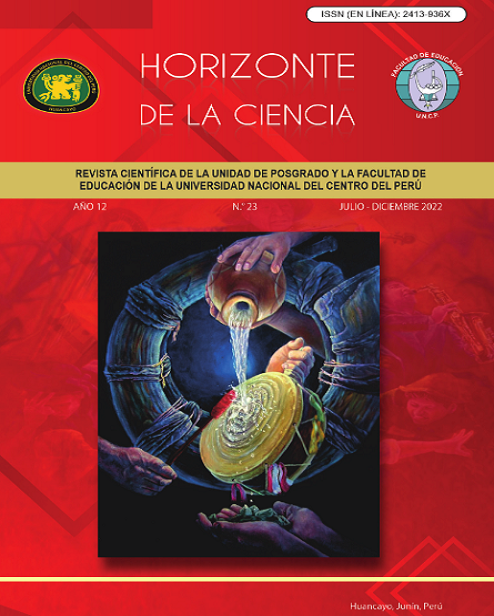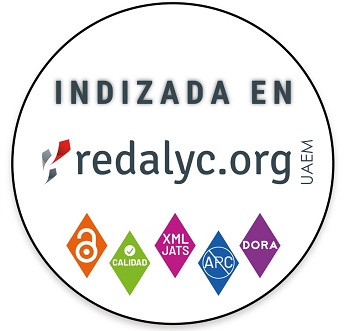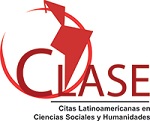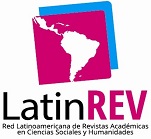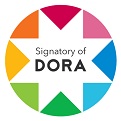Implementation of a French Writing Workshop as a Foreign Language Using ICT
DOI:
https://doi.org/10.26490/uncp.horizonteciencia.2022.23.1471Keywords:
foreign language learning, teaching practices, feedbackAbstract
The development of writing skills requires innovative didactic initiatives for students to achieve significant learning achievements. Thus, we implemented a virtual French writing workshop as a foreign language. We carried out a longitudinal study with the aim of knowing the effectiveness of the workshop with 10 participants (8 women and 2 men) with an average age of 22,4 years (SD ±1,6). The implementation of the workshop, in its pilot phase, was effective from the point of view of the students of the language center of a Mexican university. Future research will expand the sample.
Downloads
References
Allen, H. W. (2018). Redefining writing in the foreign language curriculum: Toward a design approach. Foreign Language Annals, 51(3), 513-132. http://doi.org/10.1111/flan.12350
Bouhmid, A. (2019). Diversity in creative writing workshops: the case of undergraduates studying English as a foreign language. Cahiers de l’APLIUT 38(1). https://doi.org/10.4000/apliut.7006
Castelló, M., Bañales, G., & Vega, N. A. (2010). Enfoques en la investigación de la regulación de escritura académica: Estado de la cuestión. Electronic Journal of Research in Educational Psychology, 8(3), 1253-1282. http://dx.doi.org/10.25115/ejrep.v8i22.1424
Consejo de Europa. (2002). Marco común europeo de referencia para las lenguas: aprendizaje, enseñanza, evaluación. Trad. del Instituto Cervantes. Consejo de Europa, Ministerio de Educación y Grupo Anaya.
Contreras, F. A. (2016). El aprendizaje significativo y su relación con otras estrategias. Horizonte de la Ciencia, 6(10), 130-140. https://revistas.uncp.edu.pe/index.php/horizontedelaciencia/article/view/364
Dompmartin-Normand, C. (2016). Écrivains plurilingues et étudiants de FLE. Carnets : revue électronique d’études françaises, 2(7), 234-250. https://doi.org/10.4000/carnets.1070
Ellis, R. (2009). Corrective feedback and teacher development. L2 Journal 1, 3-18. https://dx.doi.org/10.5070/l2.v1i1.9054
Food and Agriculture Organization of the United Nations [FAO]. (2021). E-learning methodologies and good practices: A guide for designing and delivering e-learning solutions from the FAO elearning Academy, (2a ed.). https://doi.org/10.4060/i2516e
Marangon, G. (2009). Italiano y español: lenguas afines. Importancia de la L1 en el proceso de aprendizaje de la L2. España: Universidad de Córdoba. Anacleta Malacitana (AnMal Electrónica) 27, 185-194.
Maya, E. (2007). El Taller Educativo. ¿Qué es? Fundamentos, cómo organizarlo y dirigirlo. Cómo evaluarlo. Aula Abierta.
Muñoz, A. P. (2010). Metodologías para la enseñanza de lenguas extranjeras. Hacia una perspectiva crítica. Revista Universidad EAFIT, 46(159), 71-85. https://publicaciones.eafit.edu.co/index.php/revista-universidad-eafit/article/view/1065
Nambiar, D. (2020). The impact of online learning during COVID-19: students’ and teachers’ perspective. The International Journal of Indian Psychology, 8(2), 783-793. https://ijip.in/articles/the-impact-of-online-learning-during-covid-19-students-and-teachers-perspective/
Rodríguez, S. (2010). Tendencias actuales en el aprendizaje-adquisición de las lenguas extranjeras: la didáctica del Francés Lengua Extranjera (FLE). Foro de Educación, 12, 233-253. https://www.forodeeducacion.com/ojs/index.php/fde/article/view/112
Saldanha, Z. (2010). Production écrite en FLE des étudiants de la 1re année de Linguistique / Français de l’ISCED de Lubango. Littératures. https://dumas.ccsd.cnrs.fr/dumas-01135096
Torras, M. E. (2021). Emergency Remote Teaching: las TIC aplicadas a la educación durante el confinamiento por COVID-19. Innoeduca. International Journal of Technology and Educational Innovation, 7(1), 122-136. https://doi.org/10.24310/innoeduca.2021.v7i1.9079
Turpin, K. M. (2019). Training foreign language learners to be peer responders: A multiliteracies approach. L2 Journal, 11(1), 35–60. https://doi.org/10.5070/L211140673
Vigner, G. (1982). Ecrire. Eléments pour la pédagogie de la production écrite. CLE International.
Published
Issue
Section
License

This work is licensed under a Creative Commons Attribution-NonCommercial 4.0 International License.

